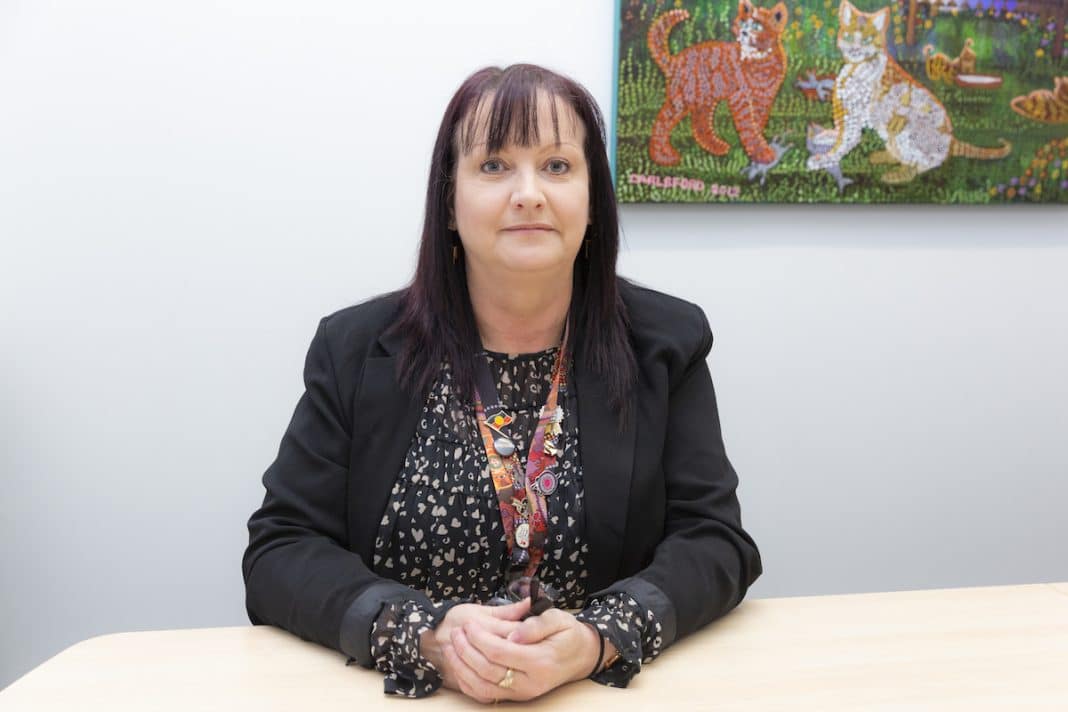“There is not enough housing in the ACT, but just housing isn’t the answer,” says local homeless services provider, Christine Moore, who seeks to draw attention to the link between mental illness and living rough.
“Absolutely there is not enough public awareness,” she says. “Some don’t know what’s going on in their own backyard.”
For Homelessness Week 2022 (1-7 August), the Mental Health Community Coalition spotlighted the rate in the ACT of people with an existing mental health issue seeking homelessness services, and revealed it’s above the national average.
In 2020, there were 492 specialist homelessness services clients with a mental health issue per 100,000 population in the ACT, compared to the national average of 391.7 per 100,000 population.
From her forefront position in the “underbelly” of the recently named happiest city in Australia, Christine describes “a lack of services, of workers, and of funding”.
“Waiting lists for services are a mile high. The workers that are out there are burning out, they’re just overwhelmed.
“We’re starting to see people on moderate incomes, normal blue collar working families, facing homelessness. We’ve got people who are barely able to put food on the table because they can’t pay the exorbitant amount of rent,” she says.
“People aren’t recognising [homelessness] until they’re in it.”
Within her case load alone, approximately 70 per cent of Canberrans seeking homelessness support services struggle with mental illness – two issues that she describes as going “hand in hand”.
“If you have a mental illness, you are more prone to becoming homeless because of societal misunderstandings… at the same time, a lot of mental illness stems from poverty.”
Now aged 51, Christine is an established member of the community services sector, previously running nation-leading initiatives with the ACT Women and Prisons Group.
However, almost 40 years ago, her own path towards homelessness began at just 12 years old, when her family moved to Mount Jordan, Queensland.
At her new school, she became the target of violent bullying, ending in a horrific culmination.
“I stopped going to school. My parents didn’t want me around because I was too hard to handle, but no one ever asked why I wasn’t going to school.
“I loved school. I stopped going because I was gang raped.
“No one ever asked. I didn’t tell people about that type of thing, and it wasn’t the only time. I was committed to a juvenile care home and stayed there for nearly 18 months, then lived on the street.”
Christine would try to return home, but before her sixteenth birthday she was homeless once more.
“On the streets, the people I associated with caused more trauma. I knew that I was going to either die or end up a severe drug user.
“People often ask, how did you change your mind and just decide to go to a friend in Canberra? Well, exactly like that,” she says.
“I didn’t expect anything, I just moved forward without focusing on what had happened to me. I was lucky enough to have a friend who took me in.”
Since arriving as a displaced 17-year-old, Christine built the woman she is today in the ACT. She states that “people suffering with mental health and homelessness, we have to work that little bit harder”.
“We have to, because if we have a record or a history, we’re looked upon differently. You have to work so much harder than the average person who hasn’t had any of that.
“I got lucky,” she says. “I was supported by some amazing women in the ACT.”
Today, she advocates for more peer-led support in the homelessness sector.
“Some people have lost hope because they’ve been in this cycle from many, many years. Homelessness and mental health issues can also be intergenerational.”
“If someone believes in you, it changes your brain. And then you start to trust people.”
“If they’re supported properly, people can move mountains.”
Other than a peer-led approach, Christine suggests breaking the cycle with “coming home programs,” to offer guidance back into the community, for those who wish to do so.
She notes this action must coincide with an increase in housing options to get those struggling with mental health and homelessness off the street, which the government proved capable of during lockdowns.
None of this can be possible, Christine says, if the ACT government keeps the true state of homelessness here hidden.
“I really, really want Canberrans to see the real picture of our homeless sector, because they are our community.
“These are our women and children out there sleeping in tents. Where are the commercials on TV? I want people to see the reality,” she says.
Canberra Daily would love to hear from you about a story idea in the Canberra and surrounding region. Click here to submit a news tip.



